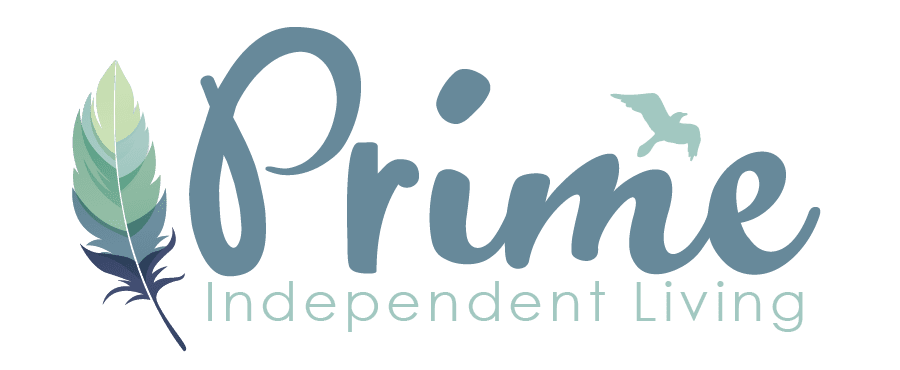There’s never a better time to start than now!
Looking for strict guidelines on keeping up with 10,000 steps a day or how much spinach to incorporate into your diet? This isn’t the blog for that. Nutrition and exercise are crucial, of course, for everyone. What’s just as important is finding activities and little changes that you can maintain over time. A healthy lifestyle should be sustainable and fun.
To mark Healthy Aging Month, here are some ideas for taking your health to the next level across the six dimensions of wellness — physical, emotional, social, occupational, intellectual and spiritual — and some thoughts on how independent living communities can help you hit your goals.
Physical wellness
You already know the importance of a diet rich in nutrients and an exercise program that combines cardiovascular work with strength training and flexibility work. The tricky part is turning this knowledge into activities you enjoy and look forward to.
Our advice? Find a healthy lifestyle that matches your temperament and personality. If you hate spinach, why force it? Broccoli has almost as much iron. Orange vegetables like carrots and squash give you vitamin A and folic acid. You can also experiment with ways to work fruits and vegetables into your diet with very little effort–think fruit smoothies with a handful of kale. You won’t even taste this difference… really!
If you like to socialize while working up a sweat, take up a senior-friendly sport like pickleball. If you prefer to count your steps solo, why not try listening to an audiobook while you take a walk? Swimming or water walking is one of the best options if you need to take it easy on your joints, and gentle yoga can increase your flexibility, while also improving balance and coordination.
Emotional wellness
Remember old-school radios and how you had to tune your way through a wall of noise to find the signal? One of the keys to emotional wellness is cutting out the noise and boosting the signal. Mute your smartphone while out walking with friends, for example, so that you can enjoy the conversation, the birdsong or the fall colors.
Even with the best intentions, everyone feels overwhelmed, sad or stressed sometimes. If you need someone to talk to, find a trusted friend or a professional ear. Other ways to maintain or improve emotional wellness include journaling, meditation or prayer, and connectivity with other people.
Social wellness
Facebook didn’t invent social networks. Friends, families and colleagues have always been our first resort in times of both stress and joy. Without these connections, we can become lonely. Aside from being an incredibly painful emotional state, loneliness can increase our chances of developing illnesses over time.
If you feel isolated, there’s every chance people you know do, too. Perhaps they’re waiting for someone to take the lead? Set up a weekly coffee morning or a regular games night, and never assume that people are as busy as they appear to be.
When you become a part of an independent living community like one of Prime’s, you’re joining a community of similarly aged peers who typically have an interest in meeting new people and forging new friendships. Whether you’d rather find a friend for a movie and popcorn or pick a pal who loves to head out for outings, friendship is essential to wellbeing.
Occupational wellness
Millions of seniors across the country enrich and strengthen their communities by sharing their skills through work, volunteering or mentoring. Everyone benefits, with research showing that people with purpose-driven lives have a lower risk of cardiovascular and blood conditions, not to mention the satisfaction and joy that comes from purpose-driven altruism and sharing.
Search the web or your social networks for volunteering opportunities in your area.
Intellectual wellness
Throughout most of life, our brain gets a regular workout, whether we like it or not. In retirement, you may need to be more proactive in finding ways to grow intellectually.
Joining a club or class kills two birds with one stone — you get to learn and socialize. Whether you’re discussing the novels of Toni Morrison or working on a patchwork quilt doesn’t really matter. As long as you’re setting your brain new challenges, you’re working on your intellectual wellness.
Prefer solo learning? Word and number games are fun, but so are quiz-based games and competition (Words with Friends is a hugely popular Scrabble-like app you can download). If you’re looking for a little more formal learning, consider auditing a class or two at a local college; many universities offer free or low-cost options for older students, and free online options abound.
Spiritual wellness
This may be the hardest dimension to adequately describe but one of the most important to nurture. For some, spiritual wellness flows from organized religion (another good way to socialize); for others, it’s about touching the transcendent in any of its forms, whether through meditation, yoga or even gardening.
If you feel like something is missing from your life but can’t quite put your finger on it, you probably need to work on the spiritual dimension. How can you address this? Check out some philosophy or religion books, check out a local faith community, or learn about meditation through one of many apps or websites.
How independent living communities support wellness in all its forms
It’s easier and more fulfilling to work on your wellness if you have a support structure. At Prime Independent Living, we give residents all the help they need to improve — or even reinvent! — their lives across all the dimensions of wellness.

